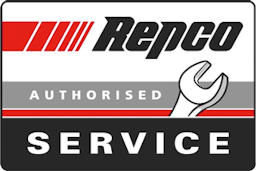How Brakes Wear Out
Most modern cars consist of disc brakes on all four wheels. As you push the brake pedal, pressure is transferred through the hydraulic fluid to a set of heat resistant pads that are then forced to grip the rotating disc brake rotor, thus creating friction which then slows and eventually stops the car.
Over time, brake pads become worn out and reduce the car’s ability to reduce speed. The Disc Rotor can also wear. The importance of changing brake pads the minute you notice these signs cannot be understated. Worn pads are not only dangerous, but can also cause expensive collateral damage to other brake system components.
Brake pads are an important safety system in every car. The brake system must be checked regularly and preferably by a qualified mechanic. Depending on the car type and driving conditions, brake pads should be replaced every 15,000 kilometres. We are located in Glen Waverley and we also serve many customers in the surrounding areas as well.
For a high quality Brake Pad Replacement Service at a competitive price, contact Total Car Care Centre today using our contact form or make a booking now with our form below.

Why Work with Us?
- Top Quality: As a part of the Repco Authorised Service Centre network all of the work we perform is backed by the Repco Nationwide Guarantee.
- Fully Trained: Our mechanics are kept up to date on latest vehicle repair methods thanks to Repco Auto-tech service bulletins. Additionally, we have access to the Repco spare parts network which means we can find you the right part at the right price.
- The Best Team: Our mechanics are well versed in different makes and models. From a fleet of vehicles to the family car, we are here for you.
Want to know more about brakes and brake service?
How often should I have my brakes inspected?
Your vehicles brakes should be inspected at every service or at least once a year. If you have any concerns about the effectiveness of your brakes or brake system you should have them inspected ASAP.
How often should brakes be serviced?spected?}
A regular brake service will uncover any potential problems with your brakes before they become major issues, thereby helping you to avoid any larger, more costly problems in the future. As a general rule, car owners should get their brakes serviced every six months to ensure the safety of their vehicles. In between brake services, it is vital that you take note of your brake performance and look out for signs that you need a brake service
Do you bleed the brakes during a standard brake service?
No, they should not need bleeding when completing a brake service unless the system has been opened. Brake fluid should be replaced as per the manufacturers specifications or every 2 years.
Do you flush the brake fluid during a standard brake service?
No, It is recommended by most vehicle manufacturers that your brake fluid be completely flushed at a minimum of every two years to prevent brake fluid contamination or system failure.
How often should I change my brake pads?
The frequency of the brake pads being replaced will vary depending on the conditions the vehicle is driven under. The right time to change your brakes depends on the make and model of your vehicle, as well as how often you drive it.
How often should I change my brake rotors?
Total Car Care Centre will always supply our customers with a written report with all work completed. This can be printed and/or emailed.
Will I receive a digital report of anything you find wrong?
Total Car Care Centre will always supply our customers with a written report with all work completed. This can be printed and/or emailed. No work is commenced without discussion and authorisation from the customer.
Should my brakes be machined?
Brake rotors or drums can be machined if required and when they meet the correct criteria. They should be machined and replaced every time the brake pads or linings/shoes are replaced.
What brake services do you offer?
Total Car Care Centre offers a full range of brake services:
- Disc brakes
- Drum brakes
- Hydraulic system service/repairs
- Hand brakes; manual and electric
- ABS systems
How can I pay for my brake service?
All work completed must be paid for on completion. Total Car Care Centre accepts cash, credit card and online transfers.
How can I book my car in for a brake service?
The easiest way to book your vehicle in is to call our Total Car Care Centre team who will happily assist you.
Why are my brakes squealing?
Brakes squeal for many reasons, they could be worn to a low pad warning tag, calipers could be sticky/seizing causing brake drag, even the way you drive could cause squealing. Whatever the reason, if there is any noise from your brakes you should have them inspected ASAP.
Why are my brakes squeaking (rather than squealing)?
Brake squeaking can be caused by many reasons. Whatever the reason, if there is any noise from your brakes you should have them
inspected ASAP.
What would cause the brake pedal to travel down a lot farther than it used to?
The most common reasons for this are:
- Out of adjustment
- Air in the hydraulic system
- Brake fluid condition
- Worn out brakes
Why are my brakes Grinding?
Vehicle pulling left or right when braking can be several faults ; worn brakes, seized or sticking calipers, incorrectly adjusted brakes and more. An inspection and repair should be done ASAP.
Why does my brake pedal feel "squishy"?
A condition in which the brake pedal doesn't have the necessary hardness is known as a spongy or soft brake, squishy pedal. When your car brake pedal becomes soft you are endangering the safety of your passengers and yourself. There are many factors that may cause this so please have your brakes inspected ASAP.
Why do my brakes vibrate when I am stopping?
A vibrating pedal is never a good sign. This motion can vary from slight shaking to severe shuddering depending on the problem and its severity. If you are experiencing this unsettling feeling when you apply the brakes it is likely caused by the brake disc (rotor) or brake drum being out of round or true.
My car makes a squeaking noise while driving which goes away when I apply the brake?
Most commonly, the brake pad wear sensors are just beginning to contact the brake rotors. This will create a loud squealing sound that may change pitch, or stop completely when the brakes are applied. Have a certified technician inspect the brake noise ASAP.
What would cause the brake pedal to travel down a lot farther than it used to?
The most common reasons for this are:
- Out of adjustment
- Air in the hydraulic system
- Brake fluid condition
- Worn out brakes
What are brake pads?
v\/hile the braking system of a car comprises of rotors, calipers, hydraulic fluid, cylinder and hoses, the part most of us think about when we hear the word "brakes" is the brake pad. The brake pads themselves are relatively small, about the size of an adults palm, and are comprised of two elements - a backing plate and friction material that is attached to that plate. The friction material is the part of the pad that is pushed against the rotor.
What's a brake caliper?
The brake caliper houses your cars brake pads and pistons Its job is to slow the cars wheels by creating friction with brake rotors. The brake caliper fits like a clamp on the wheels rotor to stop the wheel from turning when you apply the brakes. Inside each caliper is the brake pads. When you push the brake pedal, brake fluid creates pressure on pistons in the brake caliper, forcing the pads against the brake rotor and slowing your car.
What is a brake hose?
Manufactured from either rubber or stainless steel, brake hoses are used to deliver braking fluid to the brake calipers via hydraulic pressure. It is important for brake hoses to be flexible and enable the driver to steer and brake effectively, as well as manoeuvre over and around obstacles.
What is the cost of a brake service?topping?
The cost of a brake service will depend on the make and model of the vehicle and the issues that are occurring. Total Car Care Centre always discuss this with all our customers prior to works commencing.
What is the most common problem with brakes you see?
The most common problems arising with brakes are:
- Worn out brakes
- Out of adjustment
- Brake vibration/pulsation
- Fluid contamination.
What is an anti lock system and what does it do?
The anti-locking braking system (ABS) is now a standard safety system in all cars. Its purpose is to keep the driver safe by preventing the wheels from locking when you apply the brakes. You are able to keep control of the steering and your vehicle wont skid as a result of the wheels being locked up.
Which brakes do most of the work, front or rear?
Front brakes handle most of the braking force and build up most of the friction heat. Rear brakes take on less braking force. On average the front brakes do approx 75% of the braking.

